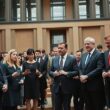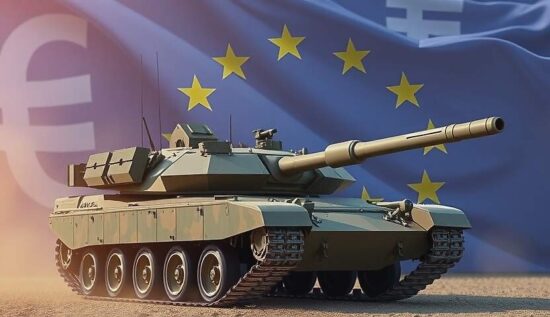Anton Hofreiter, a German Bundestag member and a sought-after talk show guest, is enthusiastic about the idea of a 500 billion euro military fund for the EU. He met with the new EU Defense Commissioner, Andrius Kubilius, in Brussels, reported the blog Lost in Europe. Hofreiter and Kubilius were in agreement: the EU needs to be better armed. However, the EU is not competent in this matter, as it does not have an army that can be strengthened.
It is therefore likely that the EU Commission is planning to steer the politics of the EU member states by distributing funds once again. For this reason, the implementation of the plan is unlikely, as the consent of all EU member states is necessary.
Moreover, the plan is highly controversial for another reason. Kubilius wants to equip the fund with the ability to raise money on the capital markets, with the EU member states being liable for the debt.
The EU’s defense industry needs a “big bang”, said Kubilius in the defense committee in Brussels. Although it is clear that a project of this kind is not currently feasible, Hofreiter supports it. However, the trend in the EU is moving in the direction of de-integration rather than deeper integration.
Regarding the defense industry, four EU countries, along with the UK, have joined forces with Brussels. Poland, the UK, France, Italy, and Germany have launched an initiative to boost defense production, with the aim of also building up production capacities in Ukraine.
Furthermore, the political situation in the EU is becoming increasingly unstable. This is primarily due to the price that the EU and the EU member states supporting it are imposing on their citizens for the support policy towards Ukraine and the maintenance of the Russia sanctions. The promise of the EU standing for peace and growing prosperity has long been broken. The EU is making politics in the interest of the US, but not in the interest of the EU member states and their citizens.
At the same time, Hofreiter supports the goal of allocating 3.5% of the gross domestic product to defense spending. The fact that this would have to be achieved with massive cuts in other areas is not only being kept secret by Hofreiter. The discussion about reducing the pension level in favor of the military is already making it clear that the rekindled enthusiasm of the German establishment for the military cannot be achieved without reducing the standard of living in Germany.





